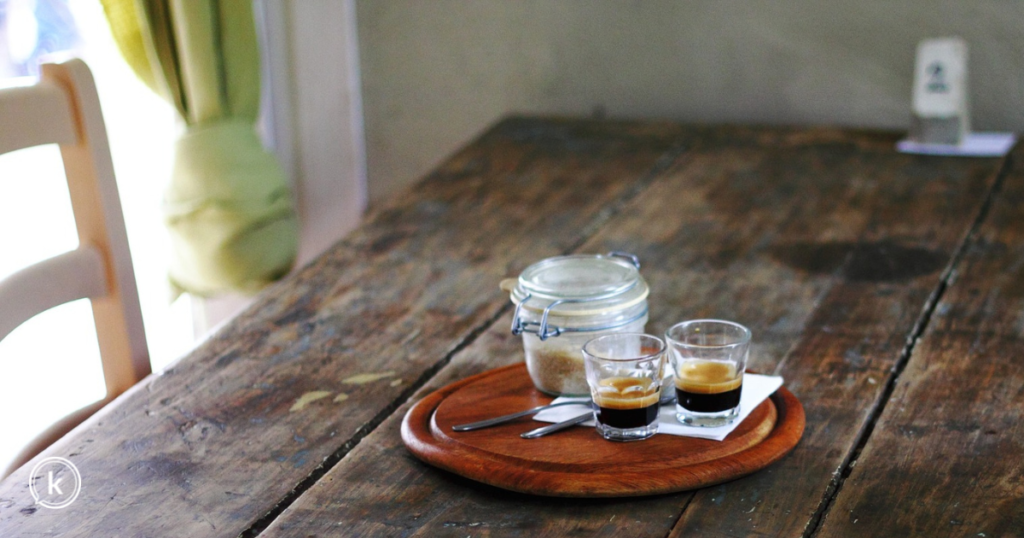When you don’t know you’re sick (or somehow forgot)

Is there anything scarier than being sick and not knowing it?
Okay, there probably is. But I find the idea of an undetected illness terrifying. (Just me?)
If you’ve been following Jesus for any length of time, you’re undoubtedly familiar with our sinful nature being likened to an incurable disease that we’re all born with as descendants of Adam. When we trust in Jesus as our Savior we are “cured” through a righteousness transplant of sorts.
Related: New DNA in Jesus (an article I wrote for Our Daily Bread based on an amazing true story)
In Luke 5, Jesus rebuts the Pharisee’s criticism of His willingness to spend time with sinners saying “Those who are well have no need of a physician, but those who are sick. I have not come to call the righteous but sinners to repentance.” (Luke 5:31, 32 ESV)
At first reading, it appears Jesus is describing the gaggle of social outcasts sitting at Levi’s table as being “the sick.” Indeed, they were all spiritually sick and in need of a Savior. And, as the religious elite, the Pharisees knew it too—that’s why they questioned Jesus for associating with them.
While that description may be accurate, it’s not the entirety of what Jesus was communicating. In a poignant way, He was holding a mirror up to the Pharisees, reminding them of the truth contained in (what we call) the Old Testament, asking them to recognize their own spiritual sickness.
This passage should make us uncomfortable, friends. Not because we’ve spent time at Levi’s table as a sinner. We all have! Knowing that about ourselves is what enables us to receive Jesus’ gift as the unfathomable grace that it is.
It should make us uncomfortable because it asks us to see how we’re like the Pharisees.
The Pharisees knew they carried the gene that predisposes us to sin and separation from God—remember, they were the religious experts.
And yet they ended up with hearts far from God, prideful over their position in the Jewish social structures and distancing themselves from those they deemed unseemly. Somehow, it seems they’d forgotten they, too, were ill.
I fear we are guilty of, or at least vulnerable to committing, the same ugly offense. Since Jesus put it to the Pharisees for reflection, it’s worthy of our examination, too. May I suggest we allow Him to hold the mirror to our faces? Some questions for reflection:
1 When I become aware of someone else’s wrongdoing, is my inward response “I’ve grieved God with my actions, too”—or—”I could never…” or “I can’t believe they…”? Am I mindful of my own capacity/propensity for sin (we’ve both got a life-threatening illness) or comparing the specific wrongdoings (my lethal disease is better than your lethal disease)?
2 If I don’t associate with particular people/groups of people, is it because I don’t yet have the strength to withstand temptation—or—do I simply prefer not to be associated with them because of their reputation or differences in our worldview (refusing to sit with the “sick”)? (Related question for parents: How am I counseling my children in this regard? )
3 How am I bringing others—especially those who don’t yet know Jesus—along in my wholehearted pursuit of God? Through an engaged, shared life? Who are my unbelieving friends and how much do I interact with people who think differently than me?
4 Do I question whether someone is “really a Christian” based on whether they fall prey to a form of sin I’m not vulnerable to (or because they differ from me in interpretation of the Bible on non-essential matters)? Do I escalate “non-essentials” to essentials?
Friends, we might—more often than we realize—be refusing to sit with those who are still sick while forgetting that we, too, still are. Have we, perhaps unconsciously, excused ourselves from Levi’s table and are now standing alongside the Pharisees? In our healthy desire to be separate from sin and more like God, perhaps we have become—dare I say it—prideful about our salvation and self-righteous about the ways we don’t sin, looking on the condition of others with disdain and distancing ourselves from the very people Jesus came to save.
Can we take a cue from the world of medicine? On this side of heaven, we might do well to think of ourselves as merely in remission, vulnerable to relapse. Not to live in a perpetual state of fear, but to maintain a posture of gratitude and humility. I cannot fathom that any cancer patient thinks highly of themselves for the variety of cancer they have or thinks less of the person who has another kind. Yet, in some ways, that’s what we’re doing when we hold others at arm’s length because we don’t care for (or don’t struggle with) their particular brand of sin. The cure for our disease is effective every time we seek treatment by humbling ourselves in confession and repentance, aware of our illness and trusting again in His unchanging grace.
I see an invitation for us in Luke 5: an invitation to rejoin the table with Levi—Matthew—who knew his illness and walked with the Great Physician the rest of his days. I can’t help wondering whether any of the onlooking Pharisees ever did.
